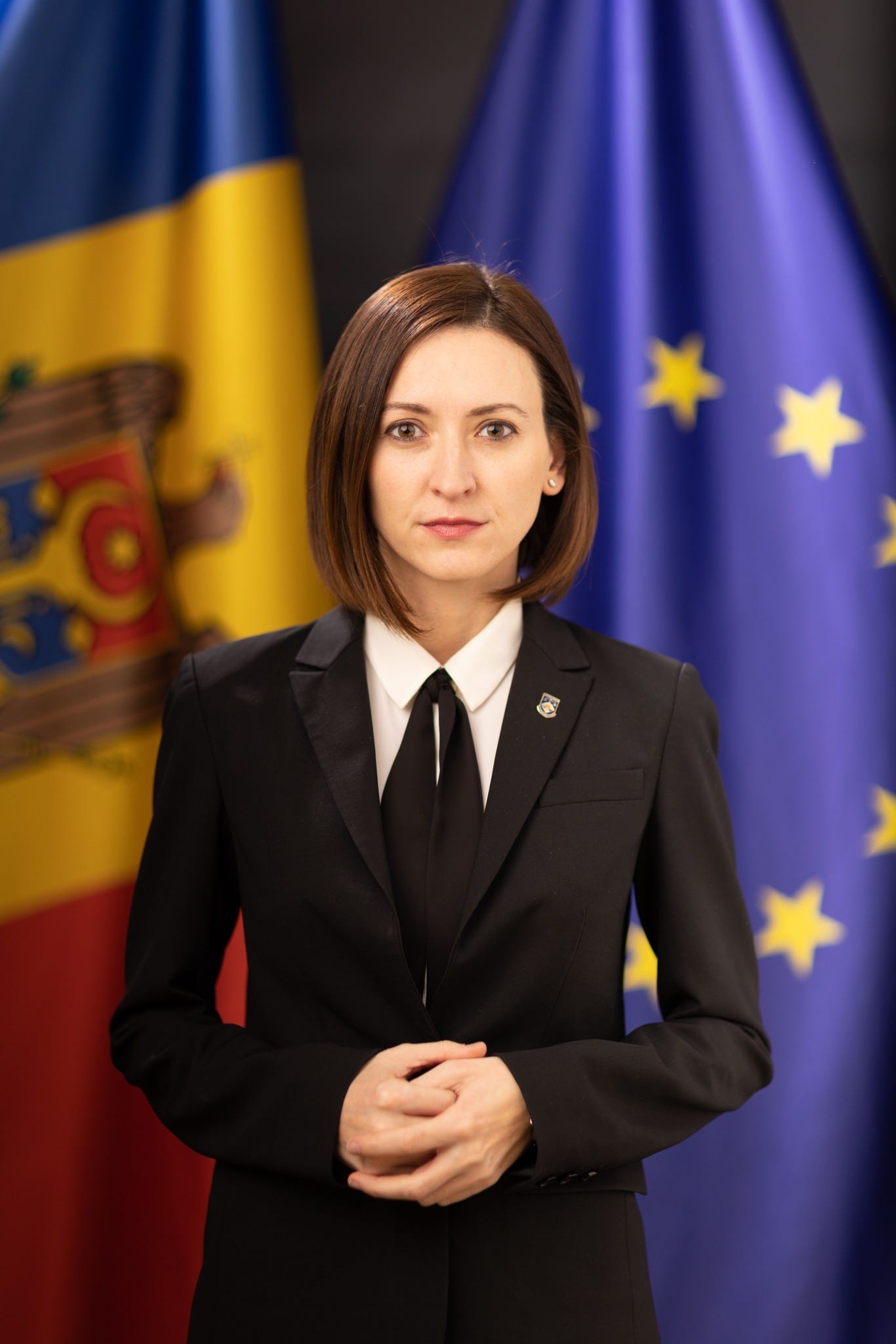A Leak and a Resignation
On May 14th retired judge Tatiana Raducanu announced her resignation from the Vetting Commissions evaluating the integrity of judges and prosecutors. The resignation was a result of the leak and publication of a letter from Anti-Corruption Prosecutor Veronica Dragalin alleging that Raducanu was acting in the interests of fugitive oligarchs Ilan Shor and Veaceslav Platon. Specifically, the letter states that Raducanu…
"is close and acted in the interests of Veaceslav Platon and Aureliu Colenco, the current main lawyer who represents the interests of Ilan Șor"
Tatiana Raducanu denies the claim and states that she resigned in order not to "jeopardize the entire evaluation process."
The Anti-Corruption Prosecutor’s office later confirmed the authenticity of the letter and stated that it was sent to the President, Prime Minister, Speaker of Parliament and to “the persons whose fundamental rights were violated.” This last phrase refers to the many judges and judicial officers who did not pass the vetting process. A fact that indicates that the letter was widely distributed.
The letter and subsequent resignation of retired judge Raducanu set off a series of accusations and recriminations which have created the largest scandal in Moldova’s justice reform process to date.
Who is Tatiana Raducanu?
Retired judge Raducanu served as a member of both Vetting Commissions (judges and prosecutors) after being proposed by PAS at the outset of the vetting process. She served as a judge from 1988 until 2016 when she retired “with honor.” During that time she served on the Supreme Court of Justice and as an ad-hoc judge on the European Court of Human Rights representing Moldova.
Raducanu is also a member of the Supreme Security Council having been appointed to that position by President Sandu.
Back in 2014 newspaper ZdG ran a story investigating the wealth of the judge which found that she lived in a house valued at 6-7 million lei in a fancy neighborhood of Chisinau. At the time the judge and her husband declared a combined yearly income of 128,000 lei. They also declared bank accounts holding 30,000 euros and $10,000. Asked about the source of the money for her house by a reporter from ZdG she replied "Come on... God, only I know how much I worked for this house. Leave it!" Reporters note that on her salary she would have had to work 50 years without any other expenses to afford the house.
At the same time no investigation was ever opened and other than the question of the house there has been no public information questioning the judge’s integrity until now.

What the Letter Alleges
The letter states that Anti-Corruption Prosecutors found text messages between former judge Aureliu Colenco (now a lawyer for Ilan Shor) and Veaceslav Platon discussing Raducanu. These messages were found on a phone that was seized as part of an unspecified investigation and date from over 10 years ago.
In the messages, Colenco, who calls Raducanu a “crazy woman,” allegedly writes to Platon calling her "our man 100%." They allege that she wanted to be president of the Superior Council of Magistrates (SCM) and was “ready to work.” Anti-Corruption Prosecutors also allege that Raducanu influenced the selection of a new headquarters for the SCM which then purchased a building from Platon at a highly inflated price.
Public Statements by Tatiana Raducanu
In a letter announcing her resignation to the Legal Committee of Parliament Raducanu states:
"the accusations invoked are false and do not correspond to reality. The sole purpose of this letter is to denigrate the pre-vetting and vetting process, and it serves the interests of some corrupt and criminal clans who want to block the cleansing of the judiciary and things to remain unchanged."
She later sent a statement to various news outlets which stated (in part):
“I do not use social networks and decided to contact you in the hope that this message will be brought to the attention of the public to eliminate any speculation about my resignation. (...) The circumstances referred to by Ms. Dragalin did not exist. I've never spoken to the former judge she's talking about. Moreover, I voted to revoke his immunity so that he could be subject to criminal investigation. In addition, I did not take part in determining the current location of the Superior Council of Magistracy, and I do not know who actually owns this former building,” …
“My explanations from the very beginning would have confirmed the groundlessness of any suspicions. I also regret that on the eve of the start of the assessment, prosecutors opened a criminal case that they did not have the right to initiate by law. However, I am ready to cooperate with any lawfully initiated investigation in order to clarify the charges brought against me,”
Raducanu also stated that she “never expected that she would be subjected to groundless and public attacks from the head of the Anti-Corruption Prosecutor’s Office.”
Aureliu Colenco and Veaceslav Platon Respond
Responding to the news both men stated that they had no relationship with the former judge. They also say that the whole situation is impossible because "Colenco does not chat via text messages, only via calls."
Calling these men “imperfect” sources of information would be a vast understatement. In comments to reporters Platon seemed to joke with them and attempt to further muddy the waters stating that he does influence the vetting commission by not via Raducanu. Platon speculated that the phone in question may have been one that was seized from him by Ukrainian authorities 8 years ago.
A War of Words
To say that things got ugly fast is a major understatement. The war of words that developed after the news of the letter and resignation is unprecedented both in scale and in terms of who is talking. Essentially the opposition is sitting this one out while members of PAS and civil society trade accusations and recriminations. Most of the statements made do not directly support Raducanu but do cast dispersions or make outright attacks on the Anti-Corruption Prosecutor’s office and Veronica Dragalin herself.
The NGO, Center for Legal Resources of Moldova (CRJM), directly attacked Dragalin stating that this letter is an attack on the vetting process itself and is designed to prevent the Vetting Commission from evaluating the integrity of the Anti-Corruption Prosecutor’s office. They stated that Tatiana Raducanu, who was once president of the CRJM board is “known by everyone as an honest and courageous person” and that she “resisted attempts by politicians to control the justice system.” They went on to state:
A preliminary check of public information would show that the main hypotheses put forward by the head of the Anti-Corruption Prosecutor's Office do not correspond to reality. Ms. Raducanu voted for lifting the immunity of Judge Colenco and did not run for the post of head of the SCM. Sending a letter to people who have not passed the integrity test, just two weeks after the initiation of a criminal case, without publicly checking the facts and with reference only to a discussion between two notorious people that took place 10 years ago, betrays the true purpose of this step - to block the AP [Anti Corruption] prosecutors from assessing their integrity, with which Veronica Dragalin publicly disagreed. This is clear from the latest reaction of the Anti-Corruption Prosecutor’s Office,”
The CRJM also stated that the Anti-Corruption Prosecutor’s office does not have jurisdiction to open an investigation against a member of the Vetting Commission - this power is reserved for the Prosecutor General. Further they noted that it is illegal to publish information about an ongoing criminal case.
Speaker Grosu answered questions posed by journalists following parliament’s acceptance of Raducanu’s resignation stating:
“This is yet another attempt to attack the independent assessment commission by prosecutors and judges who either have not passed or understand that they will not pass the test. I assure you that the commission will continue its work and the assessment process will continue.”
President Sandu also remarked saying “if prosecutors and judges were as passionate about fighting corruption as they are about fighting independent assessment, the situation would be better.” She also stated that while she sees accusations, she does not see evidence, and questioned why this information from 10 years ago would be leaked now if not to try and disrupt the vetting process. The President stated that Tatiana Raducanu will remain a member of the Supreme Security Council and will only be removed if there is sufficient evidence brought against her.
MP Olesea Stamate, formerly the chair of the Parliamentary Legal Committee was most scathing in her reaction to the letter. The MP wrote a parody letter mocking Dragalin’s in which a fictional prosecutor makes various accusations while admitting that she has neither evidence nor jurisdiction in the matter being discussed. When reached for comment by ZdG Stamate stated:
"I have nothing against the Anticorruption Prosecutor's Office acting, in certain situations, as an integrity whistleblower, to signal the authority that is responsible for appointing a person to a position about certain risks or indicators that they reveal from the investigations, which could raise questions against the person's integrity or reputation. However, this way of the Anticorruption Prosecutor's Office to inform people who did not pass the Pre-Vetting seemed to me downright strange and dangerous.
What I wanted to convey [in the parody letter] is that a very similar situation would be if the PA [Anti-Corruption Prosecutors] were to inform litigants who had cases with a judge or a full judge, and lost them, that he is being investigated by the PA for acts of corruption. Then what? It informs the litigants who had cases or who lost cases with that judge, so what? This situation is abnormal, from my point of view. It is neither the way nor the mechanism by which you do such a thing ..."
She also clearly stated that she believes this whole move is an attempt to discredit the Vetting Commission ahead of the start of the vetting of the Anti-Corruption Prosecutor’s office.
Dragalin Responds
In an initial statement, Veronica Dragalin said that she believes the information "is not fictitious" but that she cannot say with 100% certainty that the messages are authentic. She stated that “The information published by news portals in 2013-2014 is sufficient confirmation for me that these reports are not made up. But it is obvious that we are at an early stage and are continuing the investigation.” Most likely here she is referring to ZdG’s 2014 article about Tatiana Raducanu’s house.
The Anti-Corruption Prosecutor’s Office put out an official statement saying that “the Anti-Corruption Prosecutor’s Office does not seek to discredit the independent assessment procedure.” They went on to respond to the criticism by throwing quite a lot of shade at the Vetting Commission noting various scandals including the failure to appoint a General Prosecutor and saying that these missteps were not the failure of the “prosecutors and judges of Moldova.” The statement implies errors or even corruption in the political setup of the Vetting Commission and its membership.
Most jarring was Veronica Dragalin’s response to the statement and accusations by the CRJM on her facebook page. In the long post she attacks a statement by a CRJM representative who questioned if she was in fact the author of the letter. Responding, Dragalin left a numbered list of questions starting with:
1.) Does my education and professional experience not demonstrate that I am intelligent enough to analyze information from a prosecutor's point of view…?
She goes on to ask if they are implying that her knowledge of Romanian is insufficient (having grown up in the United States) or if they think she can’t do the job because she is a woman. She also implies that the authors of the CRJM letter have relatives who are financially benefiting from the vetting process. Following this list-style rebuttal, Dragalin attacks the legal reasoning of the CRJM’s letter saying “I suggest you hire better trained lawyers.”
The post ends with a picture of a quote attributed to the Dalai Lama.

Between Stamate’s parody letter and Dragalin’s “intense” facebook post this argument has well and truly spilled out of the halls of power and normal press statements and become a social media food-fight.
What is going on?
If that’s the question at the top of your mind you would not be alone. Whatever is going on we can say for certain that it is unprecedented. This is not the first time that Anti-Corruption Prosecutor Veronica Dragalin has been at odds with PAS leadership regarding the best process of fighting corruption. I wrote an article detailing one such argument in August 2023. Dragalin has also regularly complained, often on social media, that her office is under resourced. Specifically she set off multiple controversies by unilaterally identifying possible new offices for her agency, a situation that caused consternation and even panic on the part of whoever was occupying the offices she proposed to take over. But this situation is different as it does not focus on policy questions or resource allocation but is something else entirely.
If the letter alleging corruption on the part of Tatiana Raducanu had only been sent to the Vetting Commission, political leaders or to the General Prosecutor’s office (who have jurisdiction in these matters) that would be one thing. But the fact that Dragalin sent the letter to all those who have failed the vetting process so far, i.e. people who have been removed from the system due to questions of their integrity, guaranteed that it would leak. Whether this was the reason for the large mailing list is not clear, but it’s hard to see what other motivation there would be. Was it intended to give those who failed vetting some grounds for appeal? If so that would imply that the entire justice reform process would have to start over - all on the basis of a currently unsubstantiated allegation.
Senior PAS political leaders, as well as civil society groups, have stated or implied that this is really an act of sabotage. Basically, an attempt to somehow prevent the Vetting Commission from conducting an assessment of Anti-Corruption Prosecutors. Dragalin has repeatedly stated in the past that she opposes such an assessment of her office. She’s stated that if she is given the power to do so she will root out corrupt prosecutors on her own. She has also said that vetting the office will be a major distraction to her work and that many of the prosecutors might resign rather than face vetting - a situation we have seen play out in the courts already. Finally, Dragalin has personally objected to vetting stating that she is happy to account for her assets but that she opposes the vetting commission looking through her extended family’s finances.
But what would it mean if this accusation is true? It implies that the country’s Anti-Corruption Prosecutor has gone rogue and either fabricated or intentionally mischaracterized evidence of serious corruption. That she’s done it either to shield corrupt prosecutors in her office or to protect her office from any scrutiny as a personal fiefdom.
The seriousness of the implications of both the Anti-Corruption Prosecutor’s action, and of the attacks leveled against her office are somewhat being lost in the quippy social media back and forth.
Before assuming this role Veronica Dragalin served as an Assistant US Attorney in the Southern District of California focused on public corruption. She has a Doctorate in Law from the University of Virginia and was a respected prosecutor in the United States. When she returned to Moldova to take the role of Anti-Corruption Prosecutor many saw her as Moldova’s “White Knight” who would lead a concerted effort to clean up the country. The story has played out very differently than expected with Newsmaker now calling her "the main troublemaker in the Moldovan justice system" and stating that her 2 years in office have not been marked by high profile investigations and convictions but by "loud statements and scandals in which she found herself at the center."
Whoever is right or wrong in this story no one looks good.
What Comes Next
Following all of this drama the Pre-Vetting Commission put out a statement calling for a full investigation saying:
“The Pre-Vetting Commission hopes that the competent authorities will thoroughly investigate the allegations against Tatiana Raducanu in accordance with the principles of fairness, including the presumption of innocence, as provided for by Moldovan legislation and international human rights standards,”
The Vetting Commission also stated that their work will continue uninterrupted as they still have 5 sitting members, enough for a quorum. On May 21st the commission announced that they had made the decision to begin the vetting of the Anti-Corruption Prosecutors office and will start work.
The Parliament Legal Committee has announced that they have questions for the Anti-Corruption Prosecutor and have summoned Dragalin to a hearing (though they noted that they will accept written answers to questions as well). They have stated that they want to clarify what evidence exists against Raducanu.
We’ll continue following this story and any more fallout in future editions of the Weekly Roundup.






Correct me if I am wrong. Moldova may be a small nation,it may have an army only 6,000 strong, but it is a road block to Soviet, err I mean Putin aggression if Ukraine falls, and worse it already has a ready made old line Soviet Satellite on it's eastern border called Transnistria
I see two targets for Putin in the future if Ukraine falls, Moldova, possibly a feint, as he goes for the Suwalki Gap, that historical invasion plain that is the boundary line of Poland and Lithuania, that separates Soviet, err Russian Kaliningrad from Putin's satrap of Belarus.
Moldova does matter.